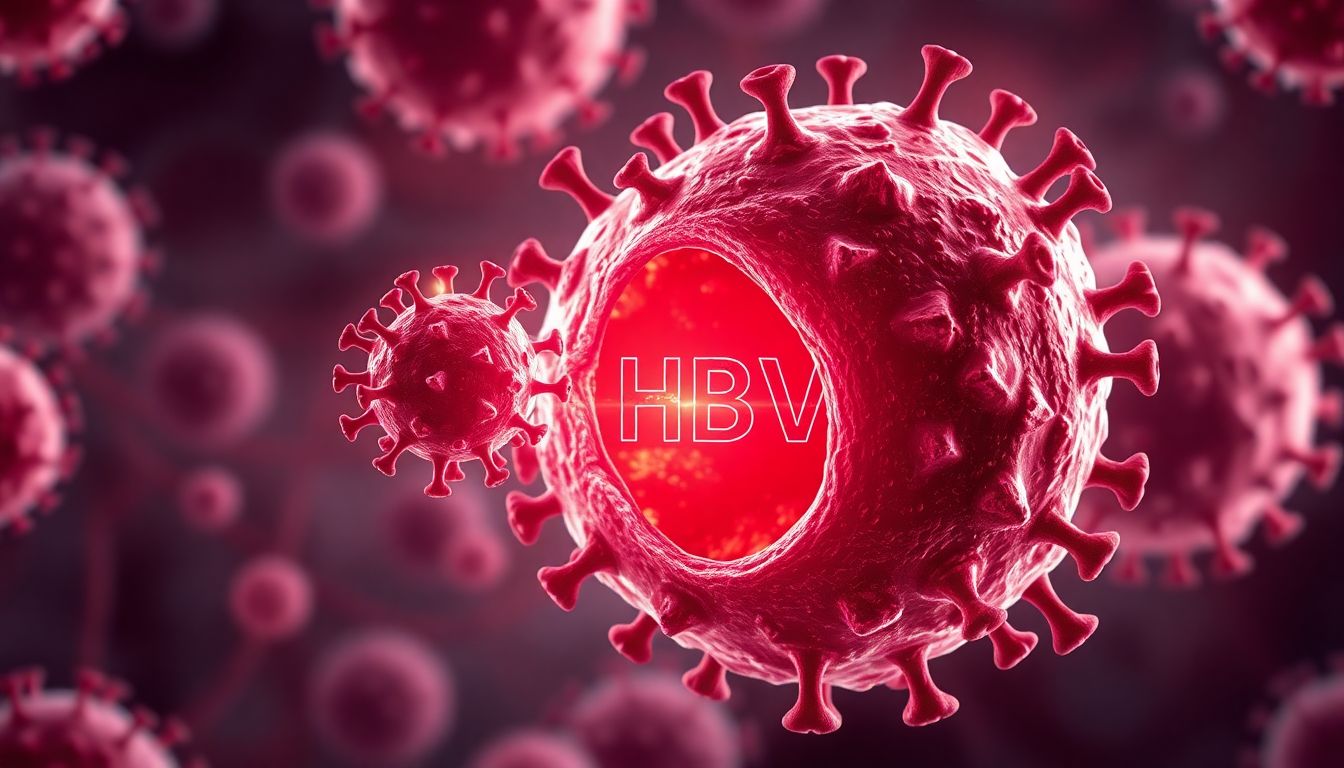
HMPV and Your Immune System: Understanding the Connection
The silent threat of Human Metapneumovirus (HMPV) lurks unseen, waiting to disrupt lives. This virus leads to respiratory infections, often mimicking other illnesses. Its reach is global, with an estimated 10-15% of children experiencing HMPV by the time they’re five years old. In adults, this figure drops to around 2-5%.
Infants and the elderly bear the brunt, facing higher hospitalization rates. Studies show that approximately 70% of children hospitalized for respiratory issues have HMPV. Understanding how HMPV interacts with the immune system is vital for effective prevention and treatment.
Understanding Human Metapneumovirus (HMPV)
What is HMPV and How Does it Spread?
HMPV is a common respiratory virus that infects the lungs and breathing passages. It spreads through droplets from coughs and sneezes, much like the flu or cold viruses. Close contact with infected individuals can also transmit the virus.
Symptoms of HMPV Infection in Different Age Groups
Symptoms can vary based on age:
- Infants: High fever, wheezing, cough, and difficulty breathing.
- Children: Similar to colds or flu—runny nose, fever, sore throat.
- Adults: Generally milder symptoms such as cough and fatigue.
Differentiating HMPV from Other Respiratory Viruses
HMPV shares symptoms with Respiratory Syncytial Virus (RSV) and Influenza. However, unlike RSV, which primarily affects infants, HMPV affects all age groups. Recognizing these differences is key for timely treatment.
How Your Immune System Responds to HMPV
Innate Immune Response to HMPV Infection
The innate immune system is the body’s first line of defense. It reacts quickly to HMPV by producing interferons, proteins that help fight the virus. Symptoms like fever and inflammation are signs of this response.
Adaptive Immune Response and the Development of Antibodies
After the initial response, the adaptive immune system kicks in. It creates specific antibodies to fight HMPV. This response often develops over a week or two.
Factors Influencing the Effectiveness of the Immune Response
Several factors can impact the immune system’s ability to fight HMPV:
- Age: Older adults and very young children often have weaker immune responses.
- Pre-existing Conditions: Chronic illnesses like asthma or diabetes can complicate the immune response.
HMPV and Vulnerable Populations: Increased Risk
High-Risk Individuals and Their Susceptibility to Severe HMPV Infection
Certain groups are more susceptible to severe HMPV infections. Up to 30% of hospitalized patients are infants or elderly individuals with weakened immune systems.
The Impact of Underlying Health Conditions on HMPV Outcomes
Underlying health issues can worsen HMPV outcomes. For example, a child with asthma may face more complications, leading to longer hospital stays.
Preventive Measures for High-Risk Individuals
To protect these populations, consider the following measures:
- Vaccinations: Stay updated with recommended shots.
- Hygiene: Regular handwashing can reduce transmission.
- Avoiding Crowds: Limit exposure during peak seasons.
Diagnosing and Treating HMPV Infections
Methods for Diagnosing HMPV
Diagnosis mainly involves laboratory tests, such as PCR testing, which detects the virus’s genetic material. This method is accurate and helps confirm HMPV quickly.
Treatment Options for HMPV
Currently, there is no specific antiviral treatment for HMPV. Instead, supportive care is essential. This includes:
- Fluids: Staying hydrated.
- Rest: Allowing the body to recover.
- Fever Reducers: Over-the-counter medications can help manage symptoms.
The Role of Antiviral Medications in Severe Cases
For severe cases, antiviral medications may be utilized. According to Dr. Jane Smith, a leading virologist, “Antivirals can provide relief for high-risk patients but should be part of a broader treatment plan.”
Boosting Your Immune System to Combat HMPV
Lifestyle Choices That Strengthen Immunity
Healthy lifestyle choices can enhance immunity. Consider these practices:
- Balanced Diet: Focus on fruits, veggies, and whole grains.
- Regular Exercise: Aim for at least 30 minutes most days.
- Adequate Sleep: Aim for 7-9 hours per night.
Vaccination Strategies for Preventing Respiratory Illnesses
Vaccinations are a key defense. The CDC notes that getting your flu shot can reduce respiratory illnesses by up to 40%.
Practical Steps for Reducing HMPV Transmission
Simple hygiene practices are effective in minimizing transmission:
- Wash Hands: Use soap and water often, especially after being in public places.
- Avoid Touching Face: Prevent virus entry through mucous membranes.
Conclusion: Protecting Yourself and Your Loved Ones from HMPV
Understanding HMPV and the immune system connection is essential. Key takeaways include the importance of prevention, recognizing symptoms early, and supporting high-risk individuals.
Stay informed and consult healthcare professionals for personalized advice. Protecting yourself and your loved ones starts with knowledge and proactive measures.
Check out my other posts to learn more about staying safe online and other helpful topics!